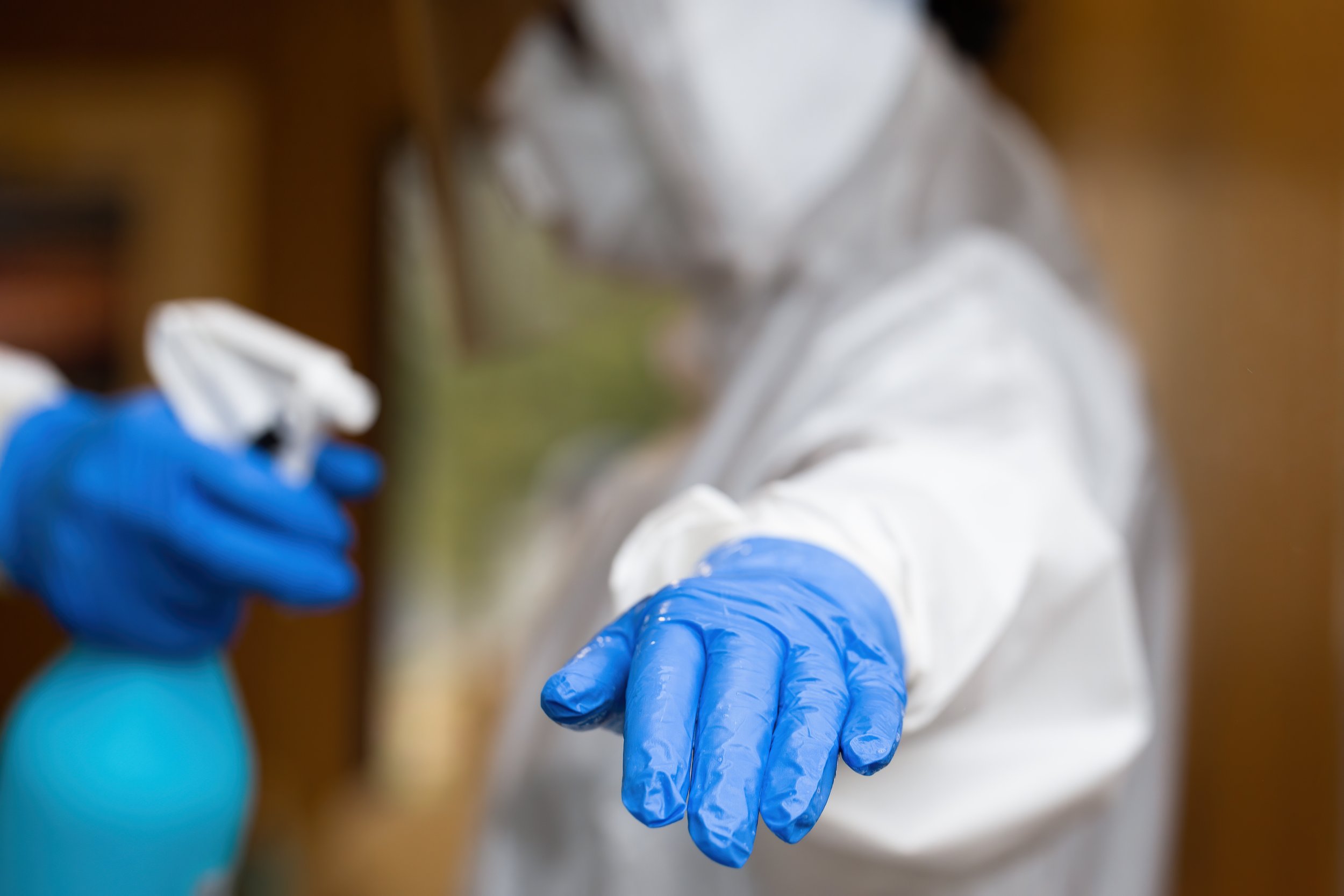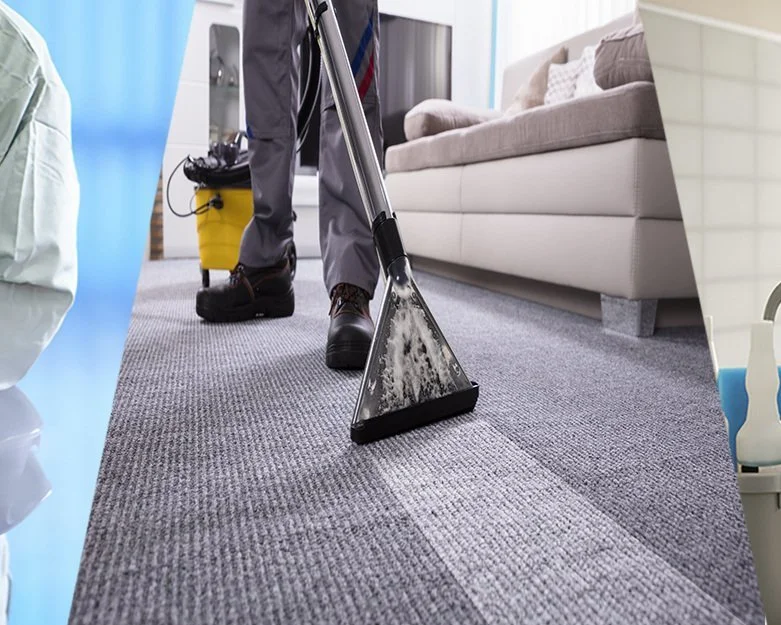The Dangers Of Cleaning An Unattended Death
Unveiling The Emotional And Physical Hazards

When someone discovers an unattended death, it can be very distressing and traumiatic. The aftermath of this is challenging for the individual. And then cleaning up after an unattended dearth is daunting, due to it not only involving physical hazards, but the emotional/psychological challenges as well.
The following article will look at the dangers associated with this responsibility, explain the potential risks involved, and emphasise the importance of using professional help.
Understanding Unattended Deaths
An unattended death refers to a situation where someone dies alone and their body is not discovered for a long period of time. This could range from a few days, to several weeks or even months.
These deaths often occur in homes/isolated locations, along with people who have no friends or loved ones who can check in on them. This makes it more likely for the decomposition process to begin, which will lead to the release of hazardous materials which pose serious health risks.
Physical Hazards

1. Blood/Bodily Fluids:
When an unattended death occurs, the individual’s bodily fluids such as blood, urine, feces, or body matter can seep into various surfaces or materials. These fluids can carry bacteria, viruses, and other pathogens. This will increase the risk of infection and disease transmission.
Direct contact with these fluids can expose someone to bloodborne pathogens, such as HIV or hepatitis.
2. Decomposition:
The decomposition of the human body releases a variety of toxic gases/fluids. The smell of decomposition caused by the realse of putrefactive gases like hydrogen sulfide and ammonia, is not just unpleasant but can cause nausea, headaches and respiratory problems.
Decomposition fluids can soak into materials like carpets, mattresses and upholstery.
This will lead to the growth of mold and harmful bacteria.
3. Contaminated Surfaces:
The immediate environment surrounding an unattended death scene is often contaminated. Surfaces such as walls, floors, and furniture can harbor bacteria, fungi, and viruses. The cleaning of these areas without PPE or correct techniques will result in exposure to harmful microbes.
4. Hazardous Chemicals:
When the deceased have been using drugs or chemicals, the cleanup process becomes a lot more dangerous.
The incorrect handling of drug paraphernalia/hazardous substances can lead to accidental exposiure. This can have immediate health effects or long-term consequences.
Emotional and Psychological Toll

Cleaning up after an unattended death poses physical risks, yes. But it can also take a heavy toll on someones emotions and mental well-being.
The psychological impact can be overwhelming due to these factors:
1. Trauma and Grief:
Discovering someone who is deceased, particulary in an advanced state of decomposition, can be traumatic and distressing.
Cleaning remnants of a tragic event can trigger intense emotional responses. These include grief, anxiety and PTSD.
2. Stigmatization/Isolation:
The perception of death and the stigma associated with it, can isolate those who are tasked with the responsibility of cleaning up after an unattended death.
The feelings of shame, judgement, couple with secrecy surrounding the even can intensify this emotional burden.
It can make it even more challenging to seek support.
3. Sensory Overload:
Sights, smells and environment of an unattended death can overwhelm sense and can trigger emotional reactions.
The lingering odours of bodily fluids and decayed remains can also imprint distressing images/senstations that are difficult to mentally erase.
The Importance of Professional Assistance

Given the variety of dangers and emotional complexities involved with cleaning after death, seeking professional help for cleaning up is crucial.
Emergency Clean UK employs industry-standard remediation techniques and equipment, which allows us to handle these situations safely, efficiently but also with compassion.
Here is why professional help is valuable.
1. Expertise/Training:
Our biohazard cleaning professionals have specialised training. They also have the knowledge of handling, containing and removal of hazardous materials.
They understand the risks involved, so the use of proper protocols, equipment and cleaning agents to ensure effective remediation while minimising further contamination.
2. PPE:
Our cleaners use specalised personal protective equipment, including gloves, maks, goggles, and coveralls. This shields our cleaners from exposure to bloodborne pathogens and other contaminants.
They are well-versed in the use of PPE and always follow strict safety guidelines.
3. Thorough Cleaning/Restoration:
Our technicians have the skills/tools to perform thorough cleaning and restoration. We are equipped to decontaminate and sanitise affected areas, eliminating biohazards and odours. Additionally, they can assess and restore any damages caused during the incident.
4. Compassion and Respect:
The main thing we pride ourselves on at Emergency Clean UK, is dealing with every cleaning situation with compassion.
Our cleaners understand that these experiences are traumatic, and aim to provide empathetic support to any individual we clean for.
Once the property is cleaned, we hope that this will relieve some stress from family members, friends and property owners.
Cleaning up after an unattended death is a arduous and hazardous task. It demands the utmost caution and sensitivity.
Physical risk associated with exposure to these hazards, plus the emotional toll it will take on someone, requires professional help.
Our specialists have the expertise and resources to handle the aftermath and will ensure you are set on the right path to closure.
This challenge we will willingly accept, aiming to ensure a thorough and safe cleanup while promoting emotional healing and well being.
If you are interested in looking at our services, please click the button below.
